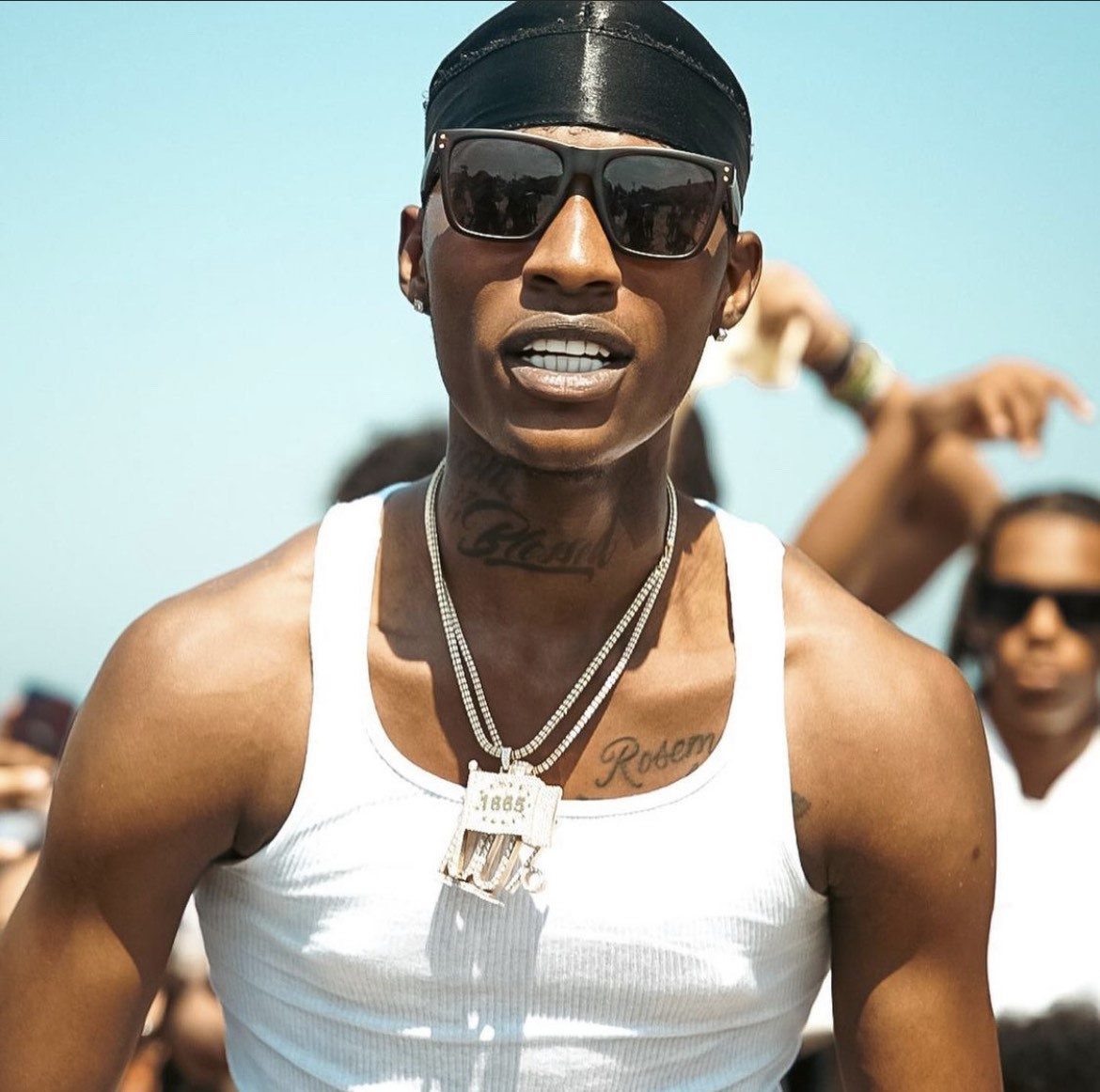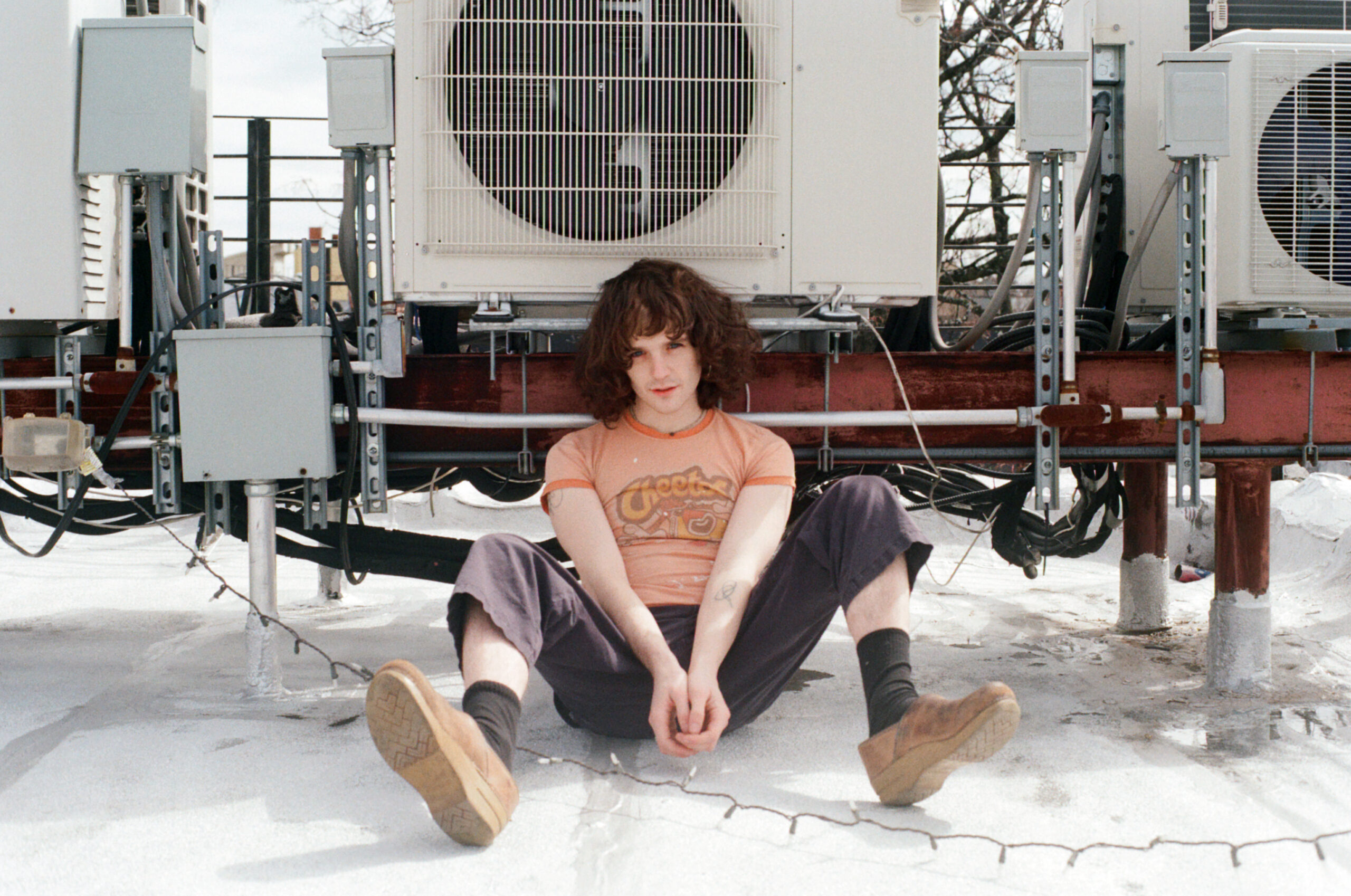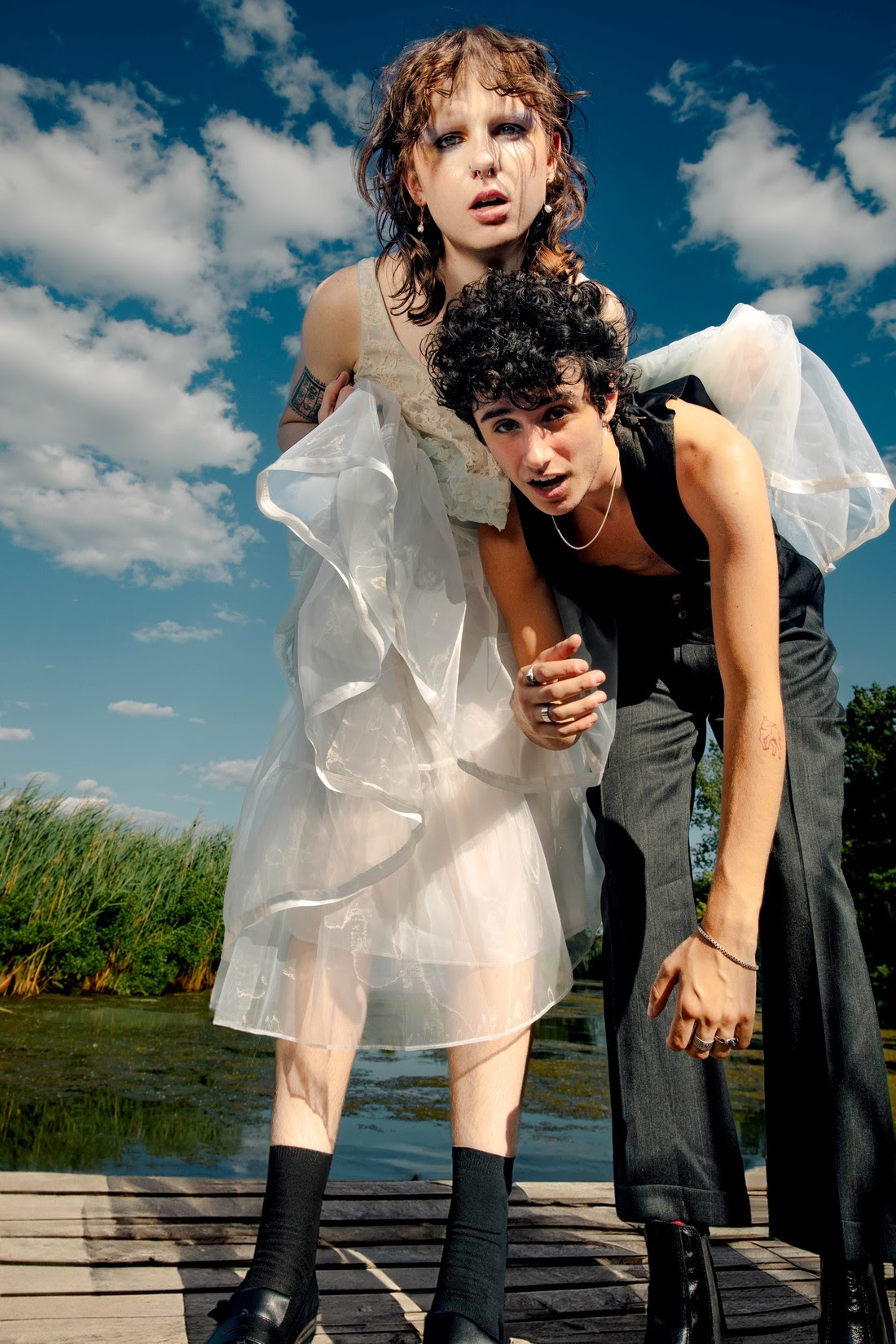To hear Bandmanrill tell it, the Jersey club rap scene might not be as triumphant if he hadn't contracted COVID in March 2020. The Great Illness of 2020 was rummaging through the body of the 20-year-old Newark MC — who at the time was more of a boxer than a rapper — keeping him held up at home with his home studio by his side. "Boxing was my life," says Bandmanrill – Rill to his friends. "I didn't do anything else. I went to school, the gym, and then home. Since the sixth grade, that was basically my life. Then I came up with COVID."
Bandmanrill is one of 11 children. He was born and raised in Newark, where frequent producer Mcvertt is also from. The club scene in Jersey was something they knew about from going to house parties in Newark growing up. Still, music was only in the cards once Rill had no choice but to try his hand at it. "You got to play your cards, right? Move accordingly," he explains backstage at Powerhouse, a star-studded show at Prudential Arena put on by Newark radio station Power 105.1, where Bandmanrill's set early in the night is doubling as a release show for his new album CLUB GODFATHER. "I got COVID and the gym was closed. I did 'Heartbroken' while I had COVID and it blew up the day after I got better."
Built on a sample of T2's 2007 UK club hit "Heartbroken," Rill's single of the same name exploded on TikTok in 2020, with users doing dance challenges and going viral with videos of moshing to the song at house parties. Despite a title alluding to despondency, the song incited joy and chaos, Bandmanrill's uptempo and brutish legato pounding dance beats the same way he used to pummel a punching bag. In the aftermath of "Heartbroken," Rill picked up a deal with Warner Records and kept churning out club tracks, putting a drill-era spin on a lineage that traces back more than a decade.
In the late 2000s, Jersey club beats were a regional marvel. Club beat giants like DJ Tameil sold their burnt tapes on Broad Street and remixed music from commercially viable rappers – putting a less market-tested spin on what was a new machine. The club music also served as a repellent for violence in Newark, once considered the murder capital of the world. The club was a haven of enthusiasm that the bleak streets couldn't offer. "It was something new. I was doing a lot of DJ's and mixtapes, and so I think it went off because no one had heard it before," DJ Tameil later tells me by phone. "It was an experiment; we didn't expect it to take off like it did."
If Drake sampling Baltimore club was a renewal of creative exuberance from an artist turned machine, then Bandmanrill using Jersey club is a symbol from a young artist delivering a new paradigm for the drill generation. The combination of both subgenres is the point. Bandmanrill is a barker without bordering on an anti-flow approach. His trick is paradoxical: He makes songs you can dance to, but there's friction in the music – a conflict of wills and temperaments. Lyrics often include tales of Rill's escapades with women and on the streets. In Rill’s club-ready world, tensile tracks still feel athletic. "Drill is great – but I don't consider myself that," Rill says. "It's just another form of hip-hop to me. Just another form of gangster rap. I'm in that cloth. I'm doing hip-hop. No disrespect to any drill artists, but we're doing different things. I'm doing Jersey rap."
Bandmanrill's success is partly because of his friend and producer Mcvertt. Mcvertt did seven of the songs on CLUB GODFATHER, and all of them are brutishly stylistic. "Bouncin," featuring NLE Choppa, starts with horns that sound like a beat they would play at a club in Dyckman. Choppa sounds rejuvenated on the beat ("If fame gotta change, you can keep the bitch/ Walk down in Christian Lou's on the opps, I'm on some demon shit"). It's hypnotic.
At just 19 (he still has braces), Mcvertt has only gotten better since he and Bandmanrill first blew up. Where before it was only about the increased tempo of his BPMs, now he samples ambiance to add to the beat. "Influence," for instance, borrows the gun-clicking sound often heard in the Philadelphia club scene. Vertt grew up in Jersey City and Newark but tried to not be in the streets. "We knew what was right and what was wrong. I was around, but my parents raised me," Vertt says backstage at Powerhouse. He met Rill in 2020: "He was a YouTuber and a TikToker. We were doing that. He hopped on the 'Heartbroken' beat, and since then, we've been that duo." Bandmanrill has songs that are jumping without Mcvertt's help too. "Jiggy In Jersey," both part I and part II, is excellent – the Bronx's Sha EK and Bandman make a great duo. On Sha EK, Rill says: "We been locked up since we were younger. He's a nigga like me. He just likes to work."
As we're closing up the interview, the Newark rapper gets a phone call from DB, aka Dawan Brown, the CEO of 100% Pure Entertainment. DB is talking like he is a coach meets A&R – after all, an A&R is essentially a music coach of sorts – and Rill is responding to the man's words. "This shit started from the bottom," DB says. "We been doing this club shit – we made this shit work when niggas was laughing at us acting like it wasn't going to work. You see it too. Right, Bandman? Now we performing at Powerhouse and Bandman got his album out. We're going to take it to the next level. Sky's the limit," the unnamed exec says over the phone. As he finishes up his speech, he gives the young rapper some real advice: "Niggas will be jealous because you do everything that they want to do."
Watching Bandman perform in a quarter-filled arena makes me itch for a packed venue for him. Looking at his team, who are joyously rapping and dancing with him, you wouldn't know that Powerhouse isn't filled yet. He runs through songs like "Influence," "Jiggy In Jersey," and "Heartbroken" with the bliss of young kids who can only keep rising in status from their – as of now – bullish but unknown cachet. "We taking this far," Rill says. "We working on more tapes. We're locked in. Jersey club rap got a chance to take over the world."
We rely on reader subscriptions to deliver articles like the one you're reading. Become a member and help support independent media!






